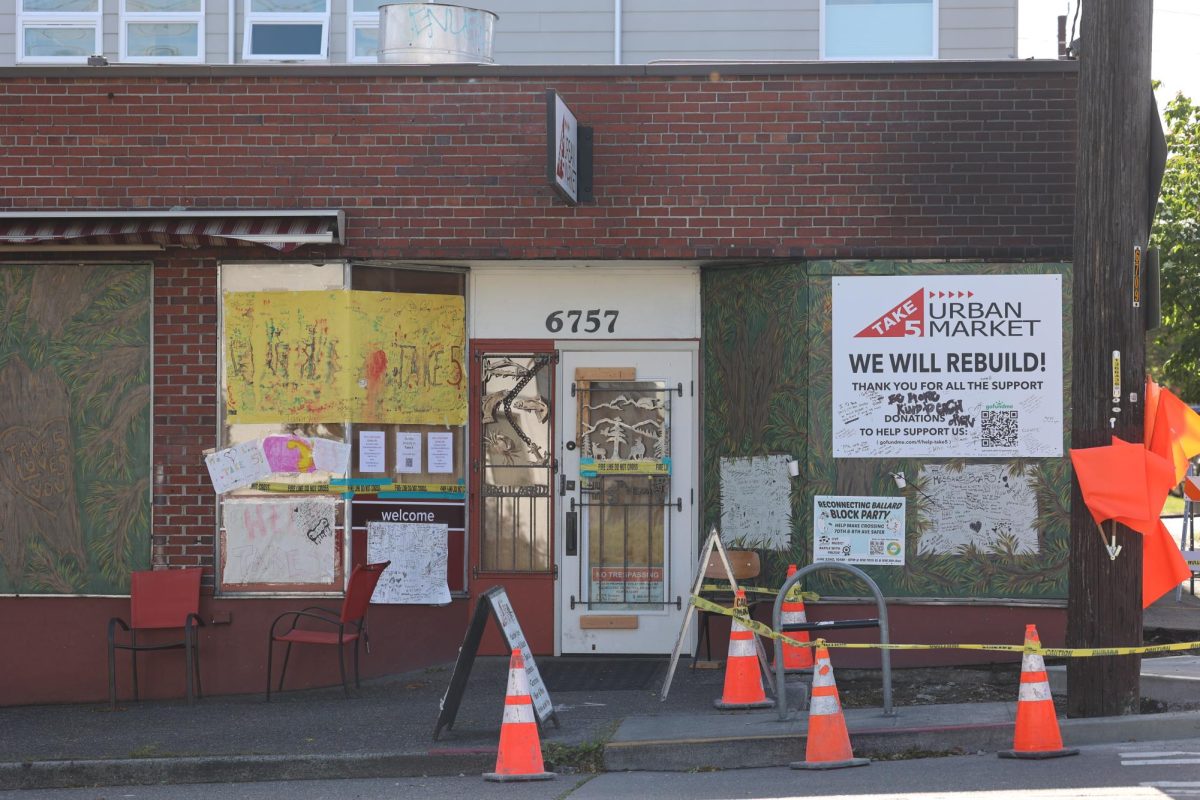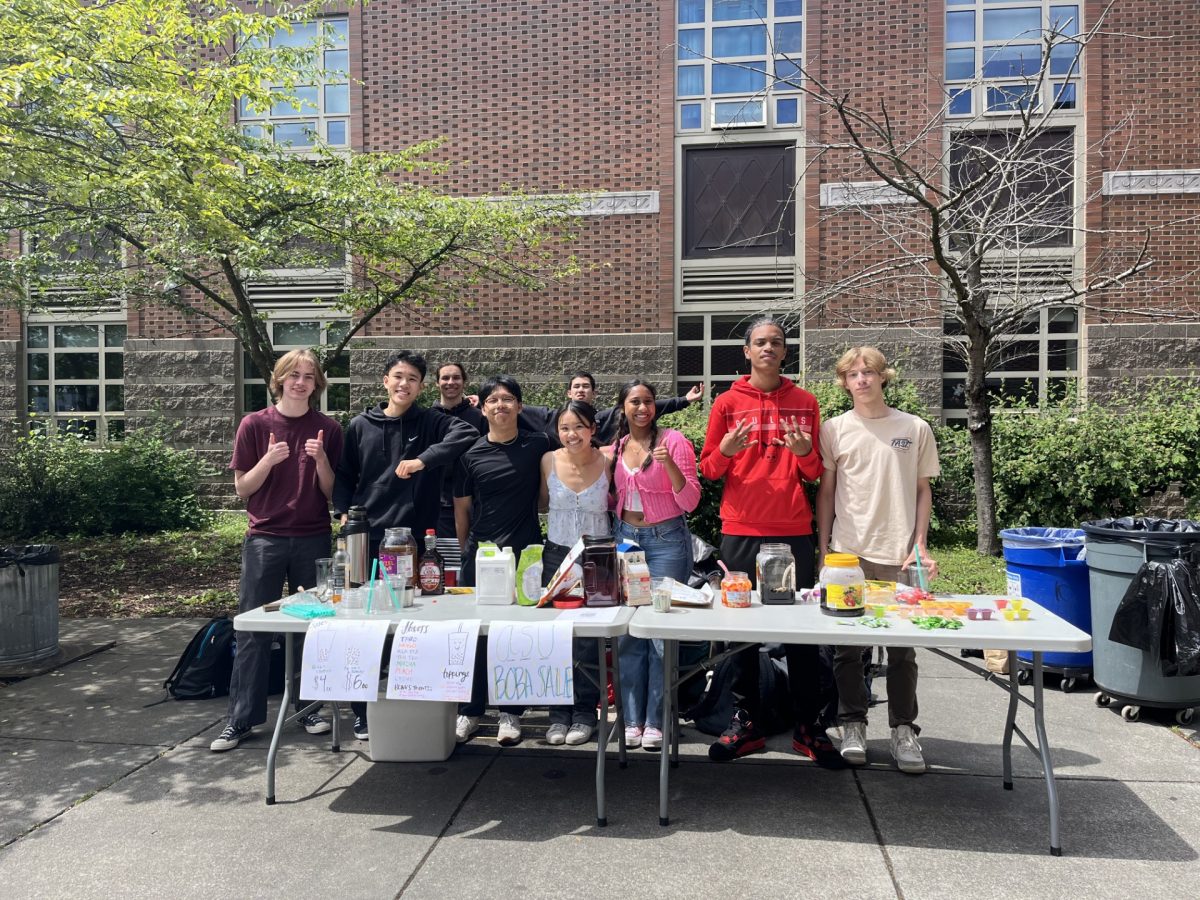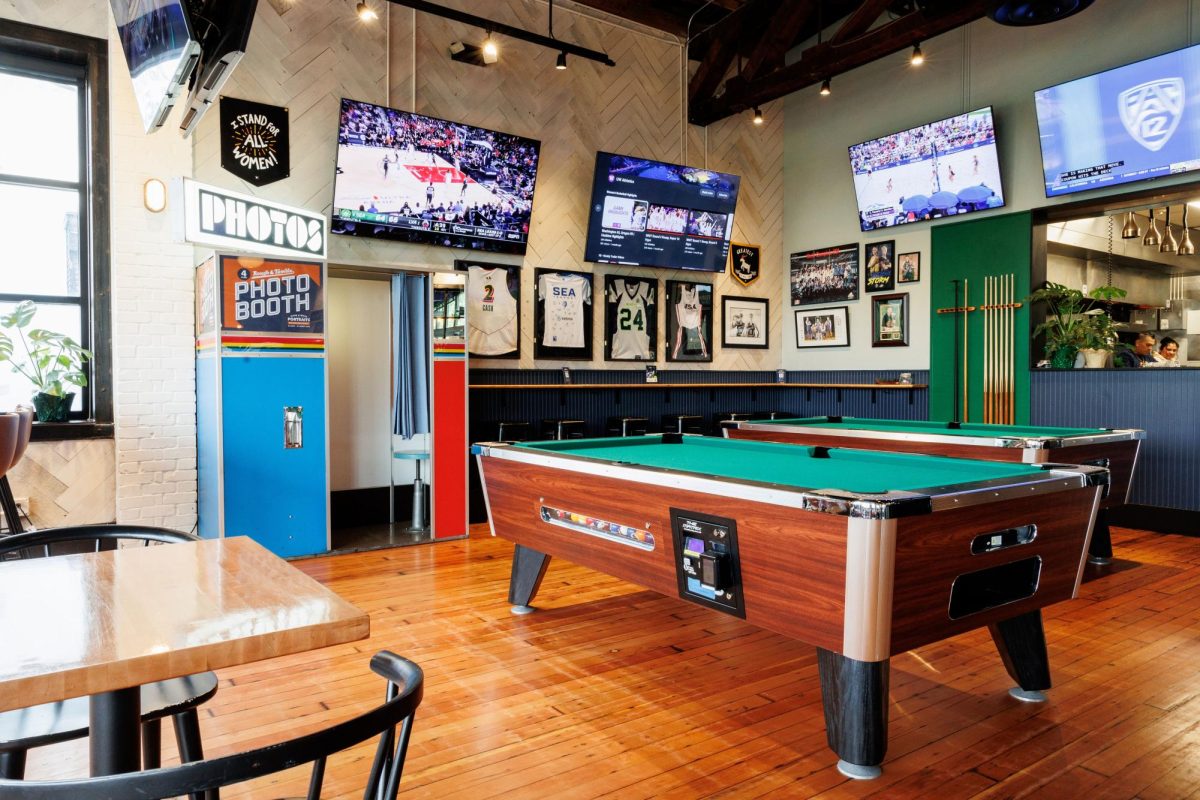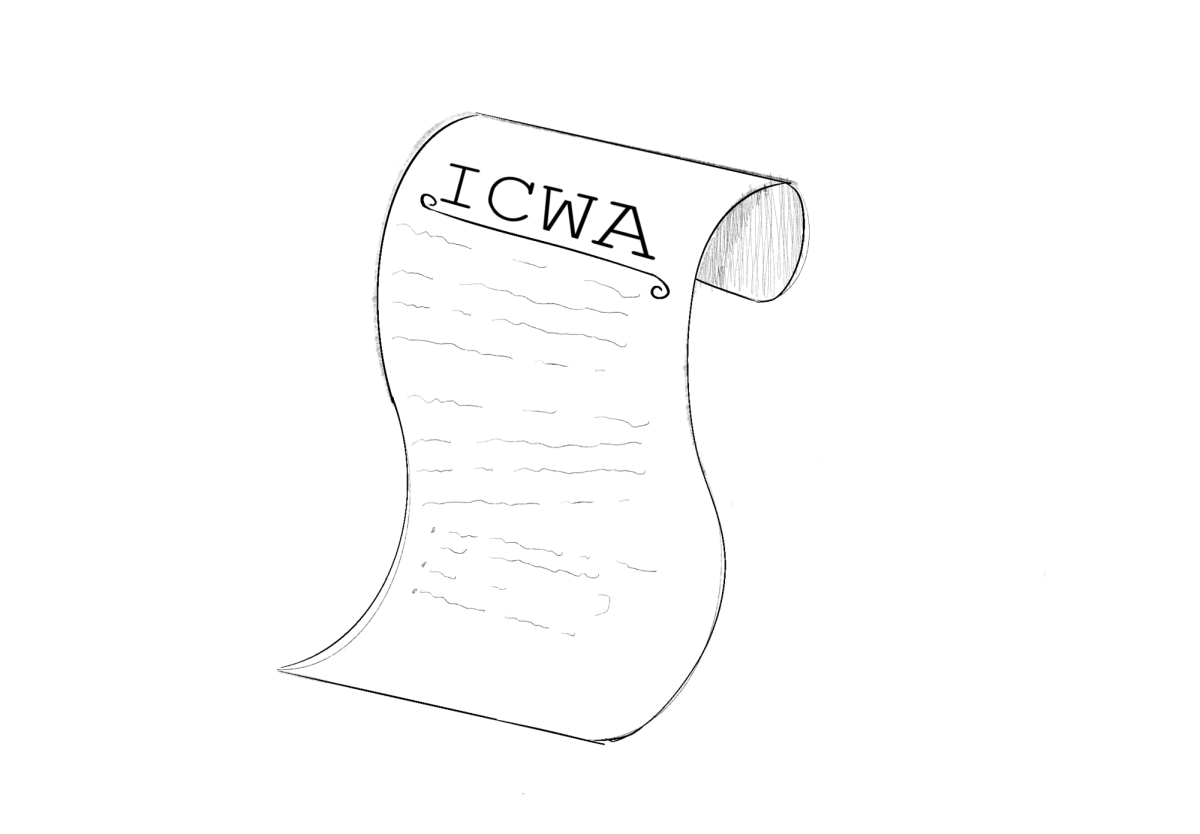Economic, ecological incentives clash as Terminal 5 drilling waystation
Elliot Bailey, A&E Editor
Originally published June 2, 2015
Photo Courtesy of Lori Jo Tanaka
Kayakers took to the water in an expression of discontent with Royal Dutch Shell.
A new chapter in Seattle’s identity crisis — the old, natural resource-built scrapper versus the new, concerned metropolitan with technology in his pocket and workplace — has been unfolding at the Port of Seattle’s Terminal 5 over the past few weeks in a series of protests.
The dispute there is over Royal Dutch Shell’s use of the terminal, in partnership with contractors Foss Maritime, as a way station for three vessels of their 25 vessel Arctic fleet. The fleet represents an exploratory drilling mission in the Arctic for the oil goliath, specifically in the Chukchi Sea.
“Alaska is a critical component of our nation’s energy portfolio, and the Chukchi Sea has substantial oil and gas potential,” said Secretary of the Interior Sally Jewell in a Feb. 2 press release.
Specifically, oil prospects in the Chukchi Sea may offer 11.5 billion barrels of oil and 34 trillion cubic feet of natural gas to those who intend to drill for it, according to a survey by the Bureau of Ocean Energy Management, Regulation and Enforcement (BOEMRE), now the Bureau of Ocean Energy Management (BOEM) and the the Bureau of Safety and Environmental Enforcement (BSEE).
But not everyone is happy about these prospects says senior Maddy Davenport, who attended one of the protests. Shell’s Arctic fleet has arrived to a hotbed of controversy as Seattleites concerned over forthcoming oil expansion in the Chukchi Sea have gathered in demonstration.
The fleet’s crown jewel, the Polar Pioneer oil-drilling rig has been a particular sticking point for protesters as it has made the intention of Shell to move forward with exploratory drilling in the Arctic unequivocal.
“It looks like an alien warship,” Davenport said of the 400-foot-long Polar Pioneer. “It’s not really supposed to be here on this Earth at all.”
The challenges to Terminal 5 operations ostensibly stem from two major concerns: the Shell project’s potential violation of Terminal 5 usage permits, which classify Terminal 5 as a cargo terminal, and ecological fears which admonish Foss and Shell’s activity as a step backward on the path to renewable energy.
In early February, Foss entered a two-year, $13.17 million lease of Terminal 5 with the Port of Seattle. During this time, Foss’ ships and those of its clients, Shell included, will be allowed moorage and a place to load vessels with the business of cargo and its transportation.
The problem with this arrangement, according to the Department of Planning and Development (DPD), is that Shell’s objectives at the terminal stray too far from the traditional definition of a cargo terminal. Per the DPD’s May 7 ruling, the Port of Seattle was required to apply for a new land-use permit which would address Shell’s intended uses.
“After talking to the Port about its plans at Terminal 5 and after reviewing the 20-year-old permit for the operation of the cargo terminal, [Seattle’s Department of Planning and Development] has found, and I concur, that the long-term moorage and maintenance of Arctic drilling equipment falls outside the current permit,” Mayor Ed Murray said at a fundraising event for the nonprofit renewable-energy proponent Climate Solutions, according to the Seattle Times.
Murray has expressed, however that pursuing the legality of Shell’s stay has been an effort to draw attention to what he sees as a potentially harmful development for Seattle and its culture of clean-energy advocacy.
“While requiring a permit may not stop the Port’s plans, it does give the Port an opportunity to pause, an opportunity to rethink the issue,” said Murray to the Seattle Times.
Representatives for Foss as well as many in Seattle’s waterfront economy claim the greater detriment to Seattle, however, is not the work of Foss and Shell, but the damage done to the city’s credibility as a home for maritime business.
Protesters remain unswayed.
“Their motives are not worth it, I don’t think,” Davenport said.
On May 16, Davenport voiced these objections from a kayak which Maritime teacher John Foster had leant her earlier that day. Alongside science teacher Noam Gundle and hundreds of others in dinghies, rowboats and kayaks, she took to the waters of Elliott Bay, approaching the Polar Pioneer and protesting its presence at Terminal 5.
“We got to meet some really cool people and did some chanting and we held up one of those big banners; that one [the one she held] said ‘climate justice now,’” Davenport said.
The May 16 protest began and resolved with no arrests.
![West Seattle High School’s (WSHS) Chinese program is closing down and teachers in the program are informed to transfer to a different high school. At WSHS, 475 both former and current students have signed a petition to help teacher Ying Yu continue her Chinese program. She shares that initially, the program offered only four classes with 90 students but with her initiatives, the program grew to be full-time with 154 students and 137 students on the waiting list. (Seattle Public Schools Board Meeting YouTube Channel: Seattle Schools Board Meeting May 8, 2024, [58:25])](https://ballardtalisman.org/wp-content/uploads/2024/06/Screenshot-2024-06-14-134038.png)


![“Link Crew is meant to be a way for [upperclassmen] to help ninth graders with the transition to high school,” Laura Lehni, language arts teacher, ASB advisor and Link coordinator, said](https://ballardtalisman.org/wp-content/uploads/2024/05/IMG_4601-1200x800.jpg)










![Henry Willy [pictured left] taking the field with his teammates in a 10-11 loss vs. Saas.](https://ballardtalisman.org/wp-content/uploads/2024/05/IMG_2431.jpg)








